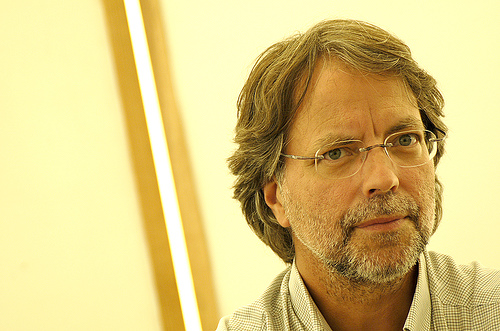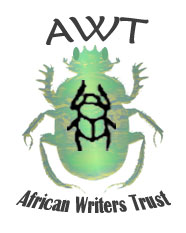We’re in Mozambique, ladies and gentlemen. Portuguese speaking since 1400’s, since Vasco da Gama alighted there in 1498, and by 1505, Mozambique had fallen in the hands of Portuguese rule.
So the first Coat of Arms was Portuguese, the second Portuguese, and the third revised Portuguese East Africa. There were at least four versions of Portugal’s Coat of Arms imposed on Mozambique before the island fought and achieved its independence. We shall get to that very soon.
Being coastal and bordered by the Indian Ocean, Mozambique’s current population is made up of Indians, Arabs, Bantu and Swahili speakers, Portuguese descendants and all kinds of mixed mixes. As for religion, anything and everything goes. Folks have stayed true to Catholicism, Islam, Animism, Bahai, independent and social beliefs, practices, etc.
Like all regions under colonial rule, Mozambique locals agitated and fought for Independence. The socialist and Marxist ideologies that spread across Africa in the 1950’s and 60’s promised freedom from colonial rule. Political movements sprung up, and in Mozambique, Frelimo—The Front for the Liberation of Mozambique—founded in 1962 initiated freedom campaigns. It was in Dar-es Salaam, thanks to Julius Nyerere, that Frelimo established anchor and support, and merged with other Mozambique nationalist movements.
All was not well in the other Portuguese colonies of Angola and Guinea-Bissau. The fire was on, and the period 1961-1974 became known as the Portuguese Colonial War. The first to win was Guinea-Bissau (September 10, 1974). Since 1446 it had been under Portuguese rule. Frelimo (Mozambique) won the war in 1975, and Angola too.
Samora Machel became the first president of the Republic of Mozambique from 1975-1986 when he died in a plane crash.
Sadly, the fruits of independence were bitter and bloody. Mozambique plunged into a deadly civil war between the Marxist Frelimo and the anti-communist RENAMO rebel militia from 1977-1992. There were snakes all around: Apartheid South Africa, White-rule Rhodesia aka Zimbabwe, snakes and landmines.
Joaquim Chissano took over leadership in 1986 after Samora’s death, and brought peace. It was a long struggle, ladies and gentlemen. Chissano’s reforms included enacting a new constitution, a multi-party system, free and fair elections, and a shift from Marxism to market-based economy. Chissano was Mozambique’s second president from 1986-2005 when he stepped down (although the constitution allowed him to run for a third term), and so he became one of the very few presidents in African history to ever step down.
Mozambique has an interesting flag. Adopted in May, 1983, it is the only national flag in the world to include the image of an AK-47. Here’s what the wiki says:
The original flag of the FRELIMO, the leading political party in Mozambique, also had green, black, and yellow horizontal stripes separated by white fimbriations. In the hoist was a red triangle. The black, green, and yellow were derived from the flag of the African National Congress, used in South Africa. On independence the colors were rearranged to form the national flag, in diagonals emanating from the upper hoist. Over this was a white cogwheel containing the hoe, rifle, book, and star that appear on the present flag. The flag was altered in 1983; the colors were arranged in horizontal stripes, and the star of Marxism was made larger. Proposals for a new, non-partisan flag have been introduced. Green stands for the riches of the land, the white fimbriations signify peace, black represents the African continent, yellow symbolizes the country’s minerals, and red represents the struggle for independence. The rifle stands for defense and vigilance, the open book symbolizes the importance of education, the hoe represents the country’s agriculture, and the star symbolizes Marxism and internationalism.
You see why I’m attracted to symbolism? You don’t have to reinvent the wheel. Only the meaning changes overtime.
After Chissano, (2005) Armando Guebuza has since been the president of Mozambique. Besides his political role, he writes poems, and is as good a poet as Samora was, especially in war poems.
Besides war, Mozambique is known to suffer two major ailments: Drought and floods. One of the images I remember in the 2000 Mozambique floods is that of a woman who was giving birth in a tree. She and her newborn daughter were rescued by a helicopter, and I kept saying to myself; astonishing things happen.
Mia Couto writes about so many astonishing things in his novels and short stories. He mingles fantasy with the natural world in such an organic, humorous way that’s simply touching as well as compelling. He’s one writer I keep revisiting. He’s my best from Mozambique and really occupies a warm place in my heart. When things are so terrible, war going on for instance, or floods, he puts his characters in such settings and equips them with magic, dignity and humor. He doesn’t do delusions. His fantasy is real and believable. Forget Marquez’s magic realism. Couto takes you far and beyond and when you return, you’re grateful for the transportation.
I don’t know whether it’s a language thing; Latin Union to be precise, something that’s embraced mainly by Spanish and Portuguese speakers. Jose Eduardo Agualusa, my other favorite Lusophone writer (from Angola) does the same magic in equally intriguing ways. Certainly it will be Agualusa when we visit Angola. Now lets linger on Mozambique.
Born July 5, 1955, Mia Couto’s first book of poems, Raiz de Orvalho, was published in 1983, and deals with Marxist militant propaganda among other things. His novels, Sleepwalking Land, Under the Frangipani, A River Called Time, The Last Flight of the Flamingo, to mention but a few, have been published in many languages and countries, and he was the first African writer to win the prestigious Latin Union literary prize, awarded annually in Italy since 1990. Now that I’ve mentioned Italy, Couto’s work reminds me of the dreamlike quality in Italo Calvino.
Couto in his other life is a biologist. Historical fiction and fantasy his home. It might be the people and not necessarily anything to do with language that inspire the fantastical. Joaquim Chissano’s wiki has this claim:
“In 1992, Joaquim Chissano learnt the Transcendental Meditation technique. Two years later, he ordered all military and police recruits to learn and practice the technique.In addition, 16,000 soldiers and 30,000 civilians were taught the more advanced technique of Yogic Flying. Chissano said: “First I started the practice of Transcendental Meditation myself, then introduced the practice to my close family, my cabinet of ministers, my government officers and my military. The result has been political peace and balance in nature in my country.”
This sublime peace and striving for yogic balance in nature are part of Couto’s style and uniqueness. Also, his stories begin as soon as they start. No delays. Since I’m into him, I’ll feature a full story from his collection of short stories, Voices Made Night, Heinemann, 1986, and two excerpts.
The Day Mabata-bata Exploded
Suddenly the ox exploded. It burst without so much as a moo. In the surrounding grass a rain of chunks and slices fell, as if the fruit and leaves of the ox. Its flesh turned into red butterflies. Its bones were scattered coins. Its horns were caught in some branches, swinging to and fro, imitating life in the invisibility of the wind.
Azarias, the little cowherd, could not contain his astonishment. Only a moment before he had been admiring the great speckled ox, Mabata-bata. The creature grazed more slowly than laziness itself. It was the largest in the herd, ruler of the horned fraternity, and it was being kept aside as a bride price for its owner, Uncle Raul. Azarias had been working for him ever since he had been left an orphan. He would get up when it was still dark so the cattle might graze in the early morning mist.
He surveyed the disaster: the ox pulverized, like an echo of silence, a shadow of nothingness.
‘It must have been a lightning flash,’ he thought. But it couldn’t have been lightning. The sky was clear, blue without the slightest smudge. Where could the bolt have come from? Or was it the earth which had flashed?
He questioned the horizon beyond the trees. Perhaps the ndlati, the bird of lightning, was still circling the skies. He turned his gaze towards the mountain in front of him. It was there that the ndlati dwelt, there where all the rivers are one, born from the same desire to be water. The ndlati lives concealed in its four colours and only takes to the air when the clouds bellow and the sky grates. Then it is that the ndlati rises into the heavens on the wings of its madness. High in the air, it dons its clothes of flame, and casts its burning flight upon the creatures of the earth. Sometimes it throws itself to the ground, making a hole. It remains in the cavity and urinates there.
Once upon a time it was necessary to resort to the skills of the old medicine man to dig out that nest and retrieve its acid deposits. Maybe Mabata-bata had trodden on some malign vestige of the ndlati. But who would believe it? Not his uncle. He would want to see the dead ox, at least be shown some proof of the accident. He had already seen thunderstruck cattle: they became burnt out carcasses, a pattern of ashes reminiscent of a body. Fire chews slowly, it doesn’t swallow in one go, which is what happened here.
He looked about him: the rest of the cattle had scattered into the bush in fright. Fear slid from the little cowherd’s eyes.
‘Don’t come back without an ox, Azarias. That’s all I say: you’d better not come back.’
His uncle’s threat blustered in his ears. That anxiety consumed the air he breathed. What could he do? Thoughts rushed at him like shadows but found no way out of the problem. There was only one solution: to run away, to travel the roads where he knew nothing more. To flee is to die from a place and, with his torn trousers, an old bag over his shoulder, what would he leave behind to regret? Mistreatment, running after cattle. Other people’s children were allowed to go to school. Not he, for he was nobody’s son. Work tore him early from his bed and returned him to sleep when there was no longer any trace of childhood left in him. He only played with animals: swimming the river clinging to the tail of Mabata-bata, making bets when the stronger animals fought each other. At home, his uncle told his fortune: ‘This one, judging by the way he lives mixed up with livestock, will surely marry a cow.’
And everyone laughed, without a care for his tiny soul, his mistreated dreams. This was why he looked back at the fields he was going to leave behind without any regrets. He considered the contents of his bag: a catapult, some djambalau fruit, a rusty penknife. So little cannot inspire any remorse. He set off in the direction of the river. He felt he was not running away: he was merely starting out along his road. When he arrived at the river he crossed the frontier of water. On the other bank, he stopped without even knowing what he was waiting for.
As evening fell, Grandmother Carolina was waiting for Raul at the door of the house. When he arrived, she let fly with her anxieties:
‘So late, and Azarias hasn’t come back with the cattle.’
‘What? That brat is going to get a good hiding when he gets back.’
‘Isn’t it that something has happened, Raul? I’m scared, these bandits…’
‘Some fun and games have happened, that’s what.’
They sat on the mat and had dinner. They talked about the matter of the bride price, the wedding preparations. Suddenly, there was a knock at the door. Raul got up, casting Grandmother Carolina a questioning glance. He opened the door: they were soldiers, three of them.
‘Good evening, do you want something?’
‘Good evening. We’ve come to inform you of an incident: a mine exploded this afternoon. An ox trod on it. Now, that ox belonged here.’
Another soldier added: ‘We want to know where the minder is.’
‘The minder is the one we’re waiting for,’ Raul answered. And shouted: ‘These bloody bandits!’
‘When he arrives, we want to talk to him, to find out how it was that it happened. Nobody should go out towards the mountain. The bandits have been laying mines over there.’
They left. Raul remained, hovering around his questions. Where’s that son-of-a-bitch Azarias gone? And was the rest of the herd scattered out there goodness knows where?
‘Grandmother: I can’t stay here like this. I’ve got to go and see where that good-for-nothing has got to. It must be that he’s let the herd scatter maybe. I must round up the cattle while it is still early.’
‘You can’t, Raul. Look at what the soldiers said. It’s dangerous.’
But he disregarded her and went off into the night. Does the bush have a suburb? It does: it was where Azarias had taken the animals. Raul, tearing himself on the thorns, could not deny the boy’s skill. Nobody could match him in his knowledge of the land. He calculated the little cowherd would have chosen to take refuge in the valley. He reached the river and climbed the big rocks. At the top of his voice, he issued his command:
‘Azarias, come back, Azarias!’
Only the river answered, disentombing its gushing voice. Nothingness all around. But he sensed his nephew’s hidden presence.
‘Show yourself, don’t be scared. I shan’t hit you, I promise.’
He promised lies. He wasn’t going to hit him: he was going to thrash him to death, when he had finished rounding up the cattle. For the time being he decided to sit down, a statue of darkness. His eyes, now used to the half light, disembarked on the other bank. Suddenly, he heard footsteps in the bush. He stood on his guard.
‘Azarias?’
It wasn’t him. Carolina’s voice reached Raul’s ears.
‘It’s me, Raul.’
Curse that old hag, what did she want? To interfere, that’s all. She might tread on a mine and blow herself up and, worse still, him too.
‘Go back home, Grandmother!’
‘Azarias will refuse to hear you when you call. He’ll listen to me though.’
And she put her assuredness into effect by calling the cowherd. From behind the shadows, a silhouette appeared.
‘Is that you Azarias? Come with me, let’s go home.’
‘I don’t want to. I’m going to run away.’
Raul began to creep down the rock, cat-like, ready to pounce and seize his nephew by the throat.
‘Where are you going to run to, child?’
‘I’ve nowhere to go, Grandmother.’
‘That fellow’s going to come back even if I have to cudgel him back in little pieces,’ Raul’s guileful voice cut in quickly.
‘Be quiet, Raul. In your life you don’t know the meaning of wretchedness.’ And turning to the cowherd: ‘Come my child, I’ll look after you. It wasn’t your fault that the ox died. Come and help your uncle to herd the animals.’
‘There’s no need. The cattle are here, alongside me.’
Raul stood up, unsure. His heart began to do a drum dance inside his chest.
‘What’s that? The cattle are there?’
‘Yes, that’s right.’
The silence became twisted and tangled. Azarias’ uncle was not sure of his nephew’s truth.
‘Nephew, did you really do it? Did you round up the cattle?’
The grandmother smiled, thinking of how the quarrels of the two of them would now end. She promised him a reward and asked the boy to choose.
‘Your uncle is very pleased. Choose. He will respect your request.’
Raul thought it better to agree to everything at that moment. Later, he would correct the boy’s illusions, and his sense of duty as a cowherd would return.
‘Tell us your wish then.’
‘Uncle, next year can I go to school?’
He had guessed this would be it. There was no way he would consent to this. By allowing him to go to school he would lose a minder for his oxen. But the occasion required bluff and he spoke with his back to his thoughts.
‘Yes, you can go.’
‘Really, Uncle?’
‘How many mouths do you think I have?’
‘I can continue to help with the cattle. School is only in the afternoon.’
‘That’s right. But we’ll talk about all that later. Come on out of there.’
The little cowherd emerged from the shadow and ran along the sand to where the river offered him passage. Suddenly, there was an explosion and a flash which seemed to turn night into the middle of its day. The little cowherd swallowed all that red, the shriek of crackling fire. Amid the flecks of night he saw the ndlati, bird of lightning, swoop down. He tried to shout:
‘Who are you coming to get, ndlati?’
But he spoke not a word. It wasn’t the river that drowned his words: he was fruit drained of sounds, pains and colours. Round about, everything began to close in, even the river sacrificed its water’s life, and the world engulfed its floor in white smoke.
‘Are you going to land on Grandmother, poor thing, so kind? Or have you chosen my uncle, after all repentant and full of promises like the true father who died on me?’
And before the bird of fire could decide, Azarias ran and embraced it in the passage of its flame.
The Talking Raven’s Last Warning
It happened right there, in the middle of the square, full of people queuing at the store. Zuze Paraza, a retired painter, spat out bits of his two-a-penny cigarette. Then he coughed, shaking the gauntness of his body to its bones. Suddenly, so those who witnessed the event say, he vomited a live raven. The bird emerged whole from his belly. It had been so long inside him that it didn’t look like a bird. People gathered round Zuze, peeping at the creature fallen from his cough. It shook itself free of its mucus covering, raised its beak, and to everyone’s astonishment, uttered some words. With conviction, despite the bad pronunciation. Those present asked:
“He’s speaking, is he, the fellow?”
Some laughed. But the voice of the women interrupted them:
“Don’t laugh.”
Zuze Paraza warned:
“This is no ordinary bird. You’d better respect it.”
“Hey, Zuze. Translate what he’s saying for us. You must be able to understand the raven’s dialect.”
…
The Fire
The old woman was seated on the mat, waiting motionless for her man to return from the bush. Her legs suffered a double weariness: from the time-worn by ways, and from the times trodden.
Her worldly goods were spread out on the ground: bowls, baskets, a pestle. Around her was emptiness, even the wind was alone.
The old man approached slowly as was his custom. He had shepherded his sadness before him ever since his youngest sons had left on the road to no return.
“My husband is shrinking,” she thought. “He’s a shadow.”
A shadow, yes indeed. But only of his soul, for he scarcely had any body left. The old man came nearer and draped his leanness on the neighbouring mat. He raised his head and without looking at the woman, said:
“I’m thinking.”
“What is it you are thinking, husband?”
“If you die, how shall I, alone, sick and without strength, how shall I bury you?”
He passed his skinny fingers over the straw mat on which he was sitting, and went on:
“We are poor, all we have is nothingness. Nor do we have anybody else. I think it is better that we start digging your grave now.”
The woman, touched, smiled:
“How good you are, my husband! I was lucky to have you as the man of my life.”
…
And so the old man goes looking for a spade, starts to dig the grave, and the woman asks him not to dig too deep. She wants to be ‘near the top, just below the ground, so as to almost be able to touch life a little.’ The man promises that he’ll not put much earth on top of her. Excetera.
To read more of Mia Couto: The Fat Indian Girl, and Old Man with Garden at the Rear End of Time.







No comments yet.